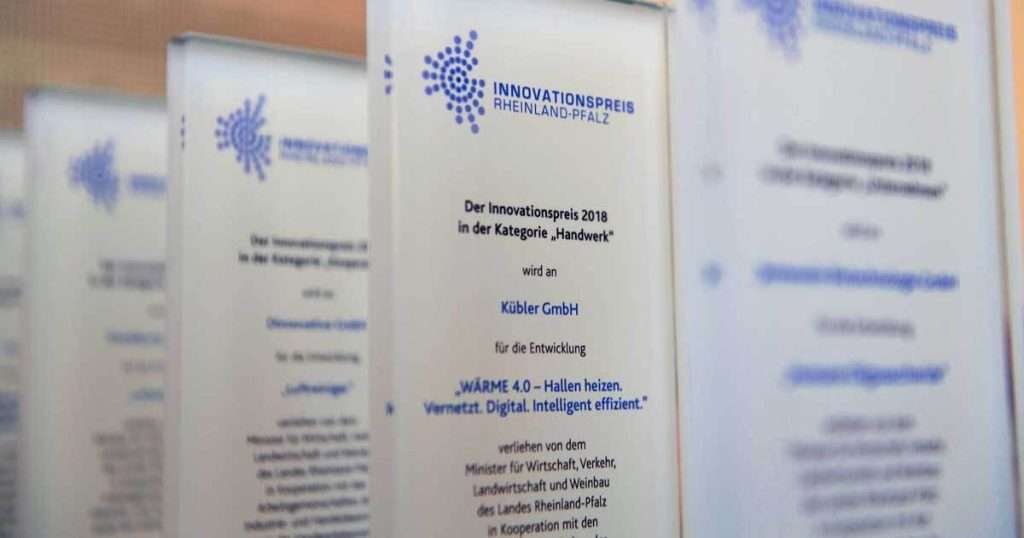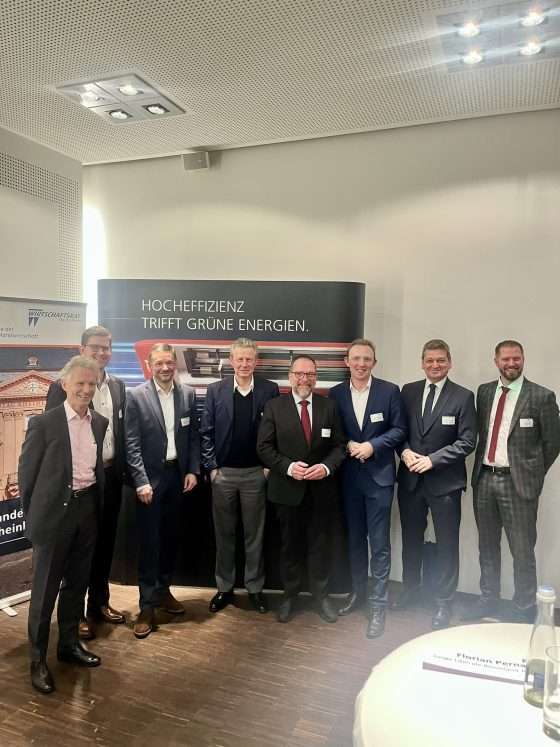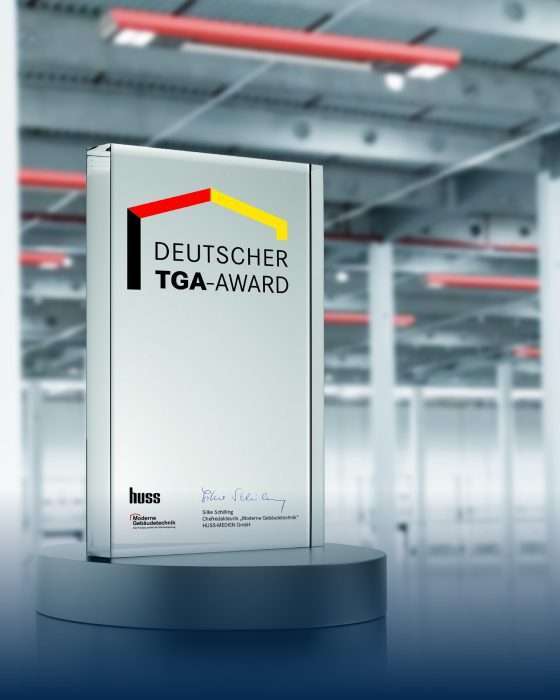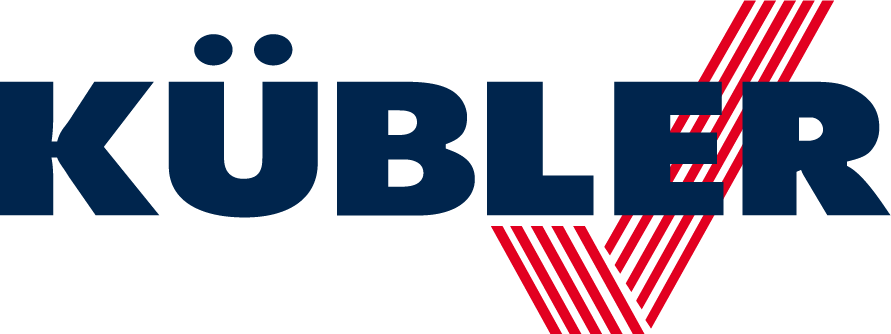High energy efficiency: KÜBLER receives the Rhineland-Palatinate Innovation Award 2018 for the digital hall heating system

With WÄRME 4.0, KÜBLER combines the possibilities of digitalization with its energy-saving heating systems. The concept networks the energy flows in a hall and thus utilizes previously unused efficiency potential (e.g. waste heat from compressors) - with up to 20 percent more energy savings. The basis for this is a completely new control system that records, analyzes and documents data flows. It enables access to important parameters at any time. This pioneering concept offers users full transparency and thus the prerequisites for effective energy management, cost savings and certification in accordance with DIN EN 50001.
For Minister of Economic Affairs Dr. Volker Wissing and the jury of experts, KÜBLER's digital hall heating system is a pioneering development that is characterized not only by its degree of innovation but also by its marketability and overall entrepreneurial performance. In a festive setting in front of guests from science, business, politics and journalism, the internationally active company from Ludwigshafen was awarded the Rhineland-Palatinate Innovation Prize 2018 in the "Crafts" category at the Koblenz Chamber of Industry and Commerce. This is the third time that the innovative company has received the coveted award, having already received it in 2008 and 2012.
For around 30 years, KÜBLER has been shaping the progress of modern large-capacity heating with its development work. Many of the developments that mark the state of the art today originated in the hall heating specialist's R&D department. "The company's high level of innovation is part of KÜBLER's sustainability strategy," says Thomas Kübler, Managing Partner of the group of companies. "WÄRME 4.0 is a pioneering step towards an energy-efficient heating technology future."
Interested in our press photos?
Would you like to download all images from the article in the highest quality? Simply click on the button below and enjoy our press photos in the highest resolution!
-
While the public debate has so far focused heavily on residential construction, specific questions arise for industrial and logistics companies: what are the implications for large-volume non-residential buildings such as production and logistics halls? Thomas Kübler, an expert in energy-efficient hall heating systems, explains the key points from a practical perspective. Climate neutrality remains the guiding principle The German government is sticking to its goal of climate neutrality [...]
-
„Anyone who is nominated for the ‘Großer Preis des Mittelstandes’ belongs to the elite of German SMEs. This nomination alone is already an award of the highest quality,“ emphasizes Barbara Stamm, President of the Bavarian State Parliament. Outstanding achievements in five areas In the competition, the KÜBLER company is assessed in its entirety and its role within society. The [...]
-
Ludwigshafen - Clear messages, clear expectations: At the annual reception of the Rhineland-Palatinate Economic Council at the main site of KÜBLER GmbH, host Frederic Renz had clear words to say about the economic situation. „SMEs need what all companies in Germany urgently need: a clear direction and reliable political framework conditions. If you want economic growth, you have to create planning security,“ emphasized the Managing Director of the hall heating specialist. Around [...]
-
Heating halls efficiently, economically and functionally is a challenge. Because in these huge buildings with ceiling heights that often reach 20 meters, a lot of energy can quickly be consumed - energy that is expensive and, depending on the heating technology used, also causes high emissions. The building stock is often still equipped with inefficient and [...]





